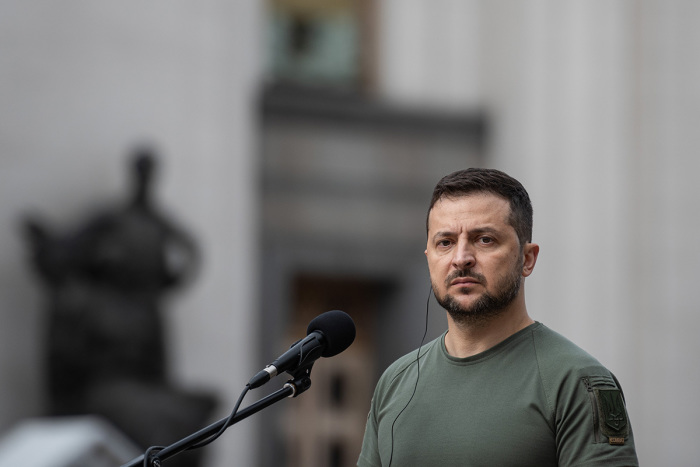Ukraine orders punitive measures against 7 Orthodox clergy over ties to Russia
Concerns raised over Zelensky's crackdown on churches, clergy

Officials in Ukraine have ordered punitive measures to be taken against seven Orthodox Church clergy who purportedly have sympathetic ties to Russia as part of a crackdown on Moscow-affiliated Orthodox churches in Ukraine that raises concerns for religious freedom experts.
Ukraine's Security Council seized the assets of the seven clergy and banned them from certain economic or legal activities, and prohibited them from traveling, Reuters reports.
Ukrainian President Volodymyr Zelensky claimed Sunday that the measures were being taken to prevent clergy from aiding Russia.
“We are doing everything to ensure that no strings are available to be pulled by the aggressor state that could make Ukrainian society suffer,” stated Zelensky, according to Reuters.
The orders against clergy are part of a broader effort on the part of Ukrainian officials to move against Orthodox churches in the nation that he claims might be sympathetic to Russia.
At specific issue are Orthodox congregations that are affiliated with the Moscow Patriarchate, instead of being affiliated with the independent Ukrainian Orthodox Church.
Orthodox Patriarch Kirill of Moscow has been a strong supporter of Russian President Vladimir Putin’s invasion of Ukraine, which led many lower-ranking Orthodox clergy to cut ties in protest.
Although the Moscow-affiliated Ukrainian Orthodox Church publicly severed ties with Russia back in May over the invasion, their properties have still been the subject of raids by Ukraine's domestic security agency (SBU) which claimed pro-Russian literature was found inside churches. Over 30 priests are being investigated for suspension of sympathizing with Russia.
Earlier this month, Reuters reported that Ukraine was considering banning worship at churches that it believes might be taking orders from the Moscow Patriarchate.
Zelensky justified this by arguing that pro-Russian influences were trying to "manipulate Ukrainians and weaken Ukraine from within" as the country battles the Russian military presence inside of its borders.
Some have expressed concern over these measures on the part of Ukrainian officials, believing that they wrongfully obstruct the freedom of religious practice and that western sympathizers are ignoring these genuine issues.
“Zelensky’s ban on the religious activities of the UOC, despite its formal split from Moscow, effectively curtails the spiritual practices of millions of already beleaguered Ukrainian people. They will not be allowed to attend their church, seek prayer from their pastors, or associate with the church community they have sought comfort from their whole lives,” wrote Hedieh Mirahmadi, a columnist for The Christian Post.
“We claim Ukraine's battle against Russia is a fight for democracy, but sending the army into monasteries is not promoting liberty. This latest move by our ally in Ukraine should be grounds for a loud outcry from Christians, regardless of where we stand on the political spectrum,” she added.
In an op-ed piece published by Newsweek, Jewish News Syndicate Editor Jonathan Tobin labeled the Ukrainian officials’ actions as “outrageous” and “authoritarian,” noting that Zelensky has also “banned his political opposition and shut down all media not controlled by his regime.”
“Democracies at war shouldn't be judged in the same light as countries at peace,” wrote Tobin. “Yet many democracies have successfully fought desperate wars without suspending basic freedoms and suppressing all dissent, let alone shutting down churches.”





























